Best 10 Forethought Alternatives in 2026


Forethought is an AI-powered support automation platform designed to build intelligent agents for ticket deflection and intent-based workflows, primarily targeting mid-market and enterprise support teams managing high volumes of tickets.
This blog reviews ten Forethought options in 2026 that offer clearer pricing, faster deployment, and better customization. The selection ranges fromno-code builders for small businesses to enterprise-grade platforms and social media solutions. Each platform helps businesses create, manage, and scale AI-driven support with greater efficiency and transparency.
Businesses are exploring alternatives to Forethought primarily due to several practical challenges that impact budgeting, implementation, and flexibility.
Forethought is an AI-powered support automation platform aimed at mid-market and enterprise teams with high ticket volumes. However, user feedback reveals common pain points driving the search for other solutions:
Forethought does not publish standard pricing, requiring multiple sales calls to get a quote. Costs vary widely with usage, making predictable budgeting difficult for many teams.
Users often need to provide 20,000 or more historical tickets for training, which is unfeasible for startups or small teams looking to implement AI support quickly
Deployment typically takes 6–8 weeks, involving ongoing data cleanup and intent maintenance. This demands dedicated technical resources, which many teams lack.
Customizing workflows to specific business needs often requires add-ons or professional services, limiting agility and control over customer journeys.
Additional AI features, extra communication channels, and advanced workflow modules can significantly increase total costs beyond initial estimates, complicating expense management as ticket volume grows.
For organizations facing these issues, alternative platforms provide clearer pricing, faster implementation, and more flexible automation capabilities without sacrificing AI sophistication.
These platforms make AI support easier to access, scale, and budget helping businesses avoid the complexities associated with Forethought’s model.
Forethought has high starting costs, unclear pricing, and automation that is hard to adjust. These issues can get in the way as support teams grow. We reviewed ten better alternatives for customer support in 2026 so you can choose the one that works best for your team.
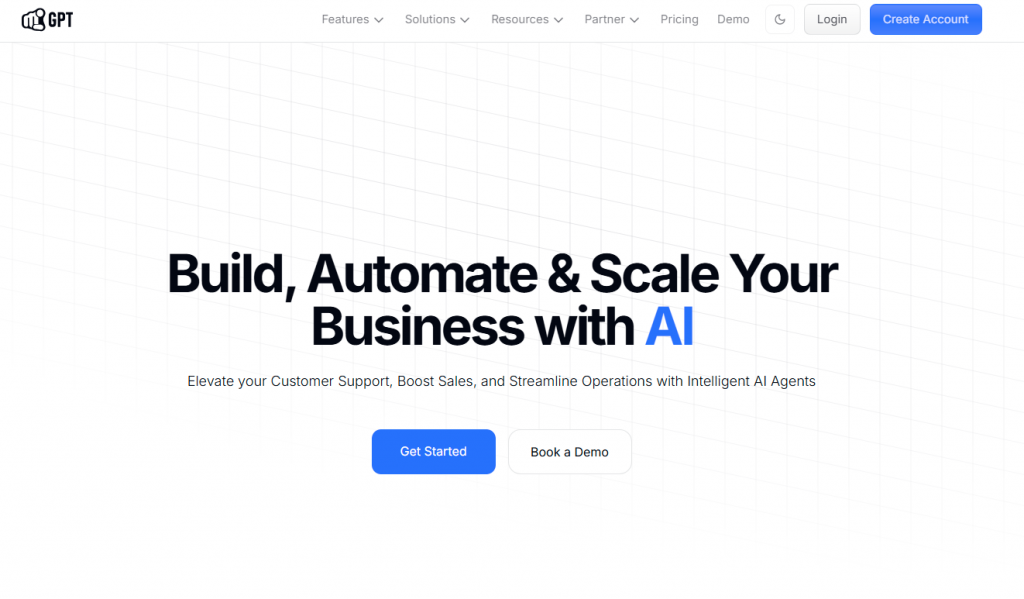
YourGPT is an AI-first platform for building and deploying AI agents without coding. It helps businesses manage customer support, sales, and operations from a single workspace that connects effortlessly with websites, WhatsApp, Slack, Messenger, Instagram, LINE, email, and voice channels.
Unlike Forethought’s hidden pricing, YourGPT publishes its plans:
All plans include a free trial, and pricing scales predictably with usage. No surprise fees or hidden costs.
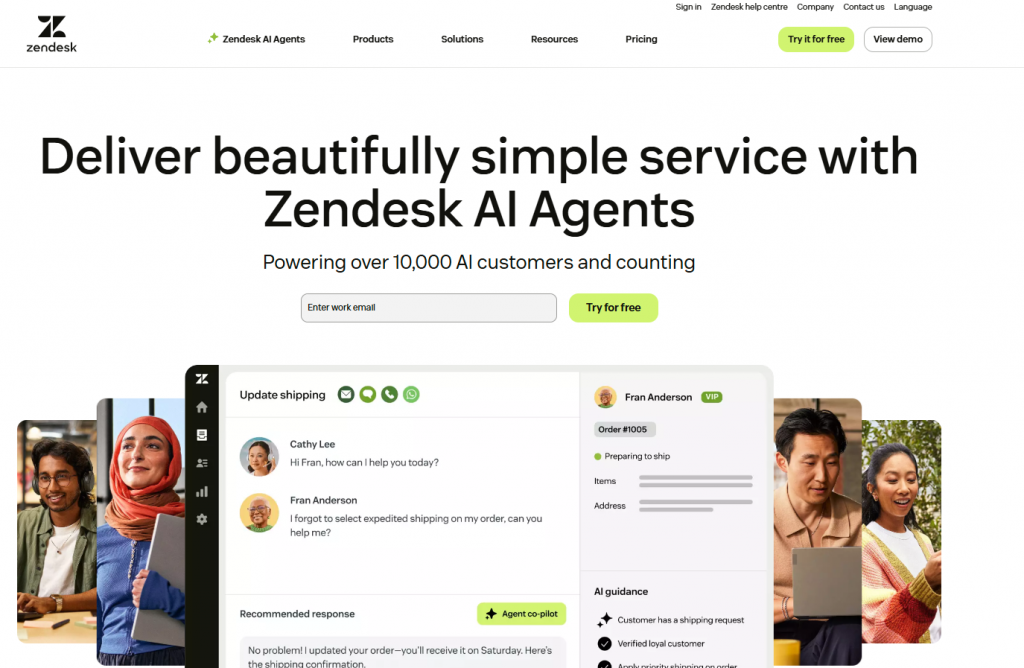
Zendesk is one of the most established platforms for customer support, offering ticketing, live chat, voice, a knowledge base, and workflow automation in one system. It is widely used by larger organisations that need a mature, scalable solution with extensive integration support.
Support Team: $19/agent/month
Suite Team: $55/agent/month
Suite Professional: $115/agent/month
Suite Enterprise: $169/agent/month
AI capabilities often require add-on purchases, increasing the total cost.
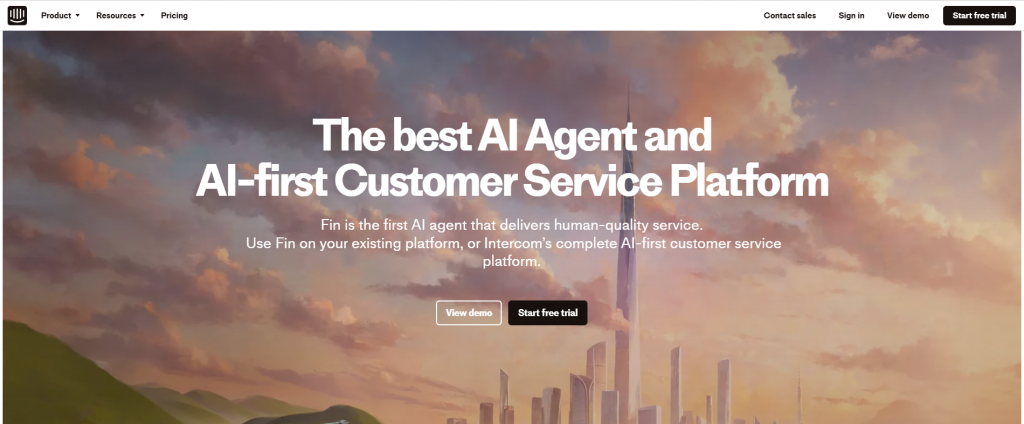
Intercom is a conversational platform centred around real-time messaging and in-app engagement. It is built for product-led SaaS companies that want to communicate directly inside their product while automating parts of the support workflow. Intercom combines live chat, behavioural targeting, and product tours in one system, with Fin AI powering automated responses.
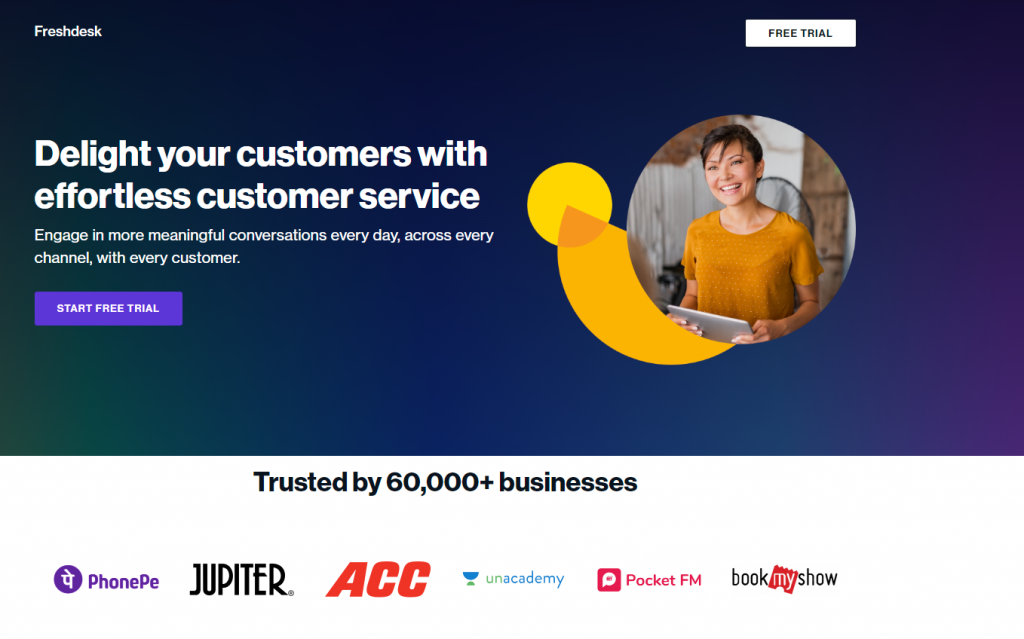
Freshdesk is an affordable customer support platform designed for teams that want a straightforward, easy-to-use system. It offers quick setup, simple ticket management, and useful automation. With Freddy AI, it helps small and mid-sized teams handle customer questions across multiple channels.
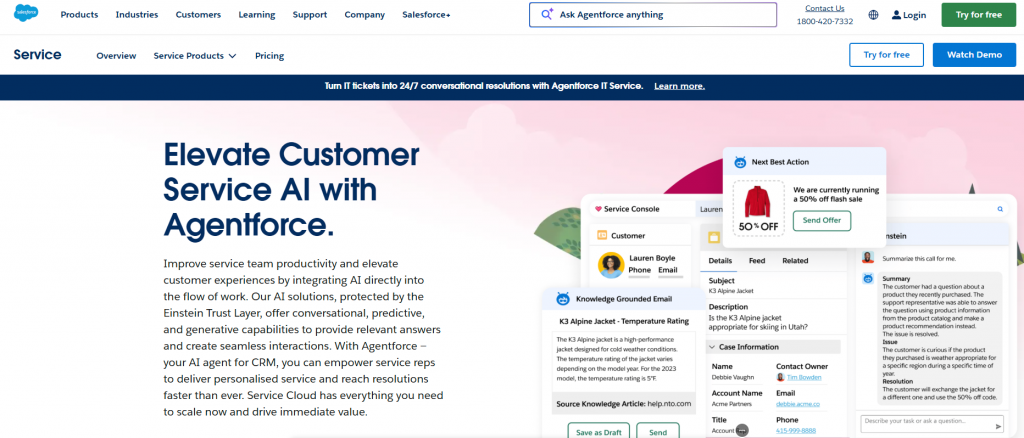
Salesforce Service Cloud is an enterprise-grade customer support platform designed for organisations that need advanced automation, deep CRM connectivity, and a unified view of every customer interaction. It offers powerful workflow customisation, extensive analytics, and tight integration across the Salesforce ecosystem. With Agentforce and Einstein AI, large teams can automate case management, improve routing accuracy, and make data-driven support decisions at scale.

Kayako is designed for teams that want a balance between AI-driven efficiency and human support. Its focus is on smooth transitions, intelligent routing, and preserving full conversation context when escalating from AI to a human agent. This makes Kayako a good fit for companies that value personalised support while still adopting AI automation.
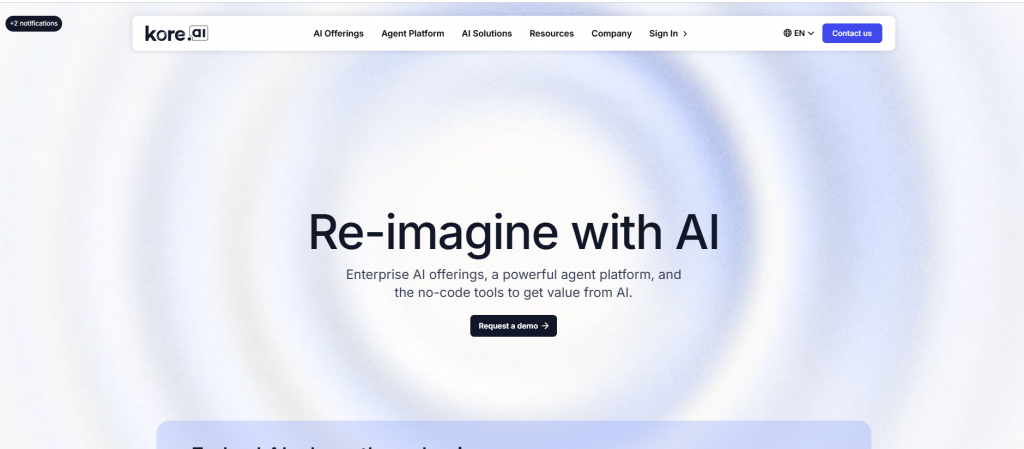
Kore.ai is built for large enterprises that need conversational AI, strong NLP capabilities, and strict security controls. It supports both voice and chat automation, making it suitable for industries that require high accuracy, compliance, and large-scale deployments. With custom workflow building and deep integration options, Kore.ai is designed for highly technical teams managing complex automation projects.
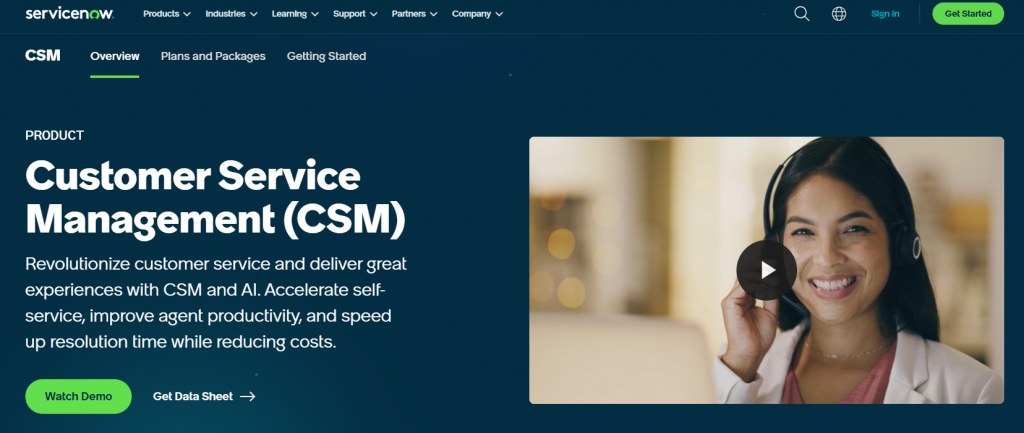
ServiceNow Customer Service Management (CSM) extends the company’s ITSM foundation into customer service, offering powerful workflow automation and deep operational visibility. It is designed for large enterprises that need complex case management, cross-departmental workflows, and strong integration with internal systems. With AI insights and self-service capabilities, ServiceNow CSM helps organisations streamline high-volume, process-driven support operations.
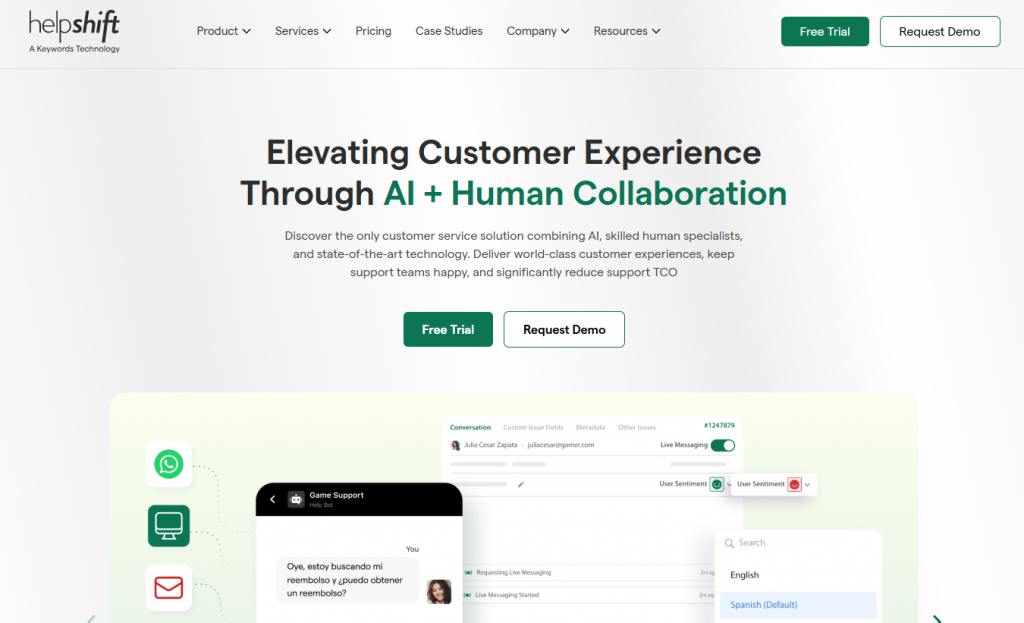
Helpshift is designed specifically for mobile apps and gaming companies that need fast, in-app customer support. Its mobile SDK allows teams to deliver embedded chat experiences directly inside their apps, while AI agents and automated workflows help reduce manual workload. With real-time analytics and an issue-based pricing model, Helpshift offers a flexible approach for teams managing high mobile traffic.
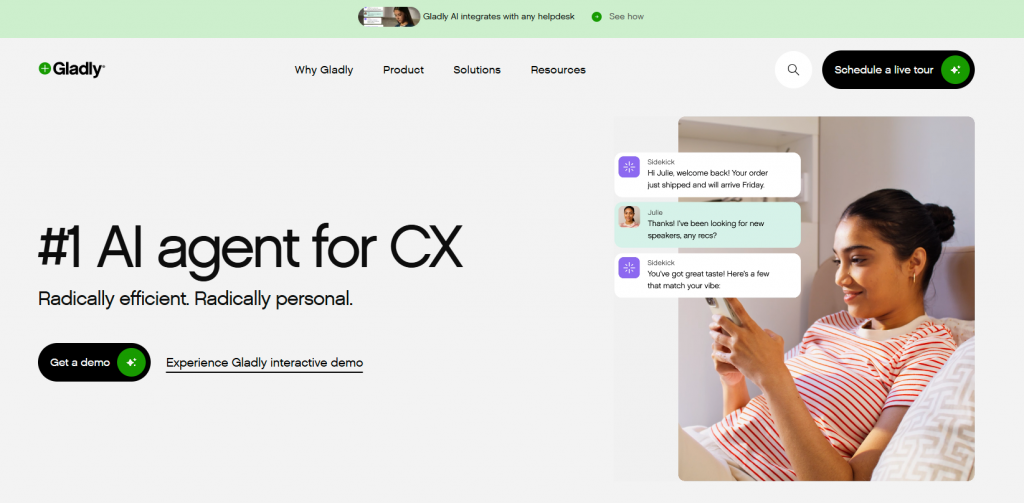
Gladly is designed to replace traditional ticket-based systems with a people-centered support model. Instead of breaking conversations into ticket numbers, Gladly keeps every interaction across all channels organized under a single, lifelong customer conversation. With native voice, messaging, and automation, Gladly helps teams deliver personalised service at scale, especially for retail and consumer brands.
Here’s a quick comparison of all 10 Forethought alternatives:
| Feature | YourGPT | Intercom | Zendesk | Freshdesk | Service Cloud | Kayako | Kore.ai | ServiceNow CSM | Helpshift | Gladly |
|---|---|---|---|---|---|---|---|---|---|---|
| Easy setup | Yes no-code quick start | Moderate SaaS-focused setup | Moderate needs configuration | Yes simple for SMB teams | No enterprise implementation | Moderate for support teams | No needs technical team | No long rollout cycles | Moderate mobile SDK work | Moderate but opinionated |
| Training and data | Multi-source RAG on your data | Uses workspace + product data | KB + tickets + apps | KB + emails + tickets | Full CRM + service data | Help center + history | Intent/entity based training | Service + IT + asset data | In-app and game events | Customer history + orders |
| Self-learning AI | Yes feedback-driven improvement | Partial via Fin tuning | Limited assistive AI | Basic suggestions only | Yes via Einstein models | Limited learning signals | Yes model refining possible | Yes tied to service data | Limited pattern learning | Limited AI adaptation |
| Persistent memory | Yes per user and account | Mostly session + profile data | Ticket-level not true memory | Ticket + contact records only | Full CRM history per contact | Conversation history focused | Configurable memory structures | Service records as memory | Per-device and user history | Customer lifetime timeline |
| Advanced automation | Yes deep workflows and actions | Strong but product-led focus | Macros + flows + triggers | Rules + SLAs + scenarios | Enterprise-grade automation | Good routing and escalation | Very advanced bot workflows | End-to-end workflow engine | In-app flows and triggers | Routing + sidekick automation |
| Multi-step workflows | Yes visual flow builder | Yes journeys and series | Yes with workflow builder | Yes scenarios and automations | Yes process builder / flows | Basic multi-step paths | Yes complex dialog flows | Yes cross-department flows | Yes issue-based chains | Yes for service scenarios |
| API and backend actions | Yes custom API + tools | Yes via apps and webhooks | Yes rich app marketplace | Yes apps + webhooks | Yes native and custom APIs | Limited compared to others | Yes deep enterprise APIs | Yes across IT and service | SDK + integrations | Yes commerce + CX systems |
| Omni-channel (web, mobile, voice, social) | Yes web, chat, WhatsApp, voice | Yes in-app, email, chat, social | Yes email, chat, voice, social | Yes multi-channel ticketing | Yes full contact center suite | Yes main digital channels | Yes web, voice, messaging | Yes portals, chat, phone, more | Strong in-app + messaging | Yes voice, SMS, email, social |
| Unified inbox | Yes across all channels | Yes shared inbox | Yes agent workspace | Yes team inbox | Yes console view | Yes conversation view | Agent consoles per channel | Service console workspace | In-app centric inbox | Yes people-based timeline inbox |
| Mobile app | Yes operator mobile support | Yes iOS and Android | Yes agent mobile apps | Yes mobile apps | Yes Salesforce mobile | Browser-first limited mobile | Yes admin/agent tools | Yes ServiceNow mobile | SDK inside mobile apps | Yes for agents |
| Web / browser extension | Yes browser extension for support | No dedicated extension | No dedicated extension | No dedicated extension | No dedicated extension | No | No | No | No | No |
| Integrations | Shopify CRMs APIs webhooks | Product + CRM + data tools | Large marketplace ecosystem | Marketplace + telephony + CRMs | Full Salesforce stack + partners | Core support tools | Enterprise apps and systems | ITSM + ERP + custom systems | Mobile backends + CRMs | Commerce, CX and loyalty tools |
| Brand and workflow control | High tone + flows + logic | Strong control in product journeys | Flexible but ticket-centric | Good for simple workflows | Very high but complex | Moderate hybrid focus | High developer-driven control | Very high enterprise control | Good for in-app flows | Strong people-first experience |
| Analytics and reports | Yes AI + support analytics | Strong engagement analytics | Mature reporting and SLAs | Good out-of-box dashboards | Advanced enterprise analytics | Standard support insights | Advanced conversation analytics | Service intelligence and trends | In-app issue analytics | Customer lifetime insights |
| AI features and models | GPT-4/Claude + RAG + agents | Fin AI for support | Zendesk AI assistants | Freddy AI suggestions | Einstein + Agentforce | AI routing and handoff | Enterprise NLP engine | Now Intelligence AI | AI agent and copilot | Gladly Sidekick AI |
| Security and compliance | SOC2, GDPR friendly | Strong SaaS security | Enterprise-grade standards | Good for SMB to mid-market | Enterprise and regulated-ready | Solid but narrower scope | Strong for regulated sectors | Enterprise and public sector | Good app security | Enterprise retail standards |
| Best fit | SMBs, mid-market, enterprises needing AI agents, automation, and omni-channel | Product-led SaaS with strong in-app engagement | Established support teams with high ticket volume | Small to medium teams wanting affordable support | Large enterprises already on Salesforce | Teams wanting hybrid AI + human escalation | Enterprises needing advanced NLP and voice | Enterprises with ITSM and complex workflows | Mobile app and gaming companies | Retail and D2C brands focusing on relationships |
Selecting the right support automation platform starts with understanding how well it matches your team’s skills, business goals, and long-term plans. The ideal Forethought alternative should help you automate faster, improve resolution times, and scale support without adding operational friction.
1. Match the Platform with Your Team’s Skills
Before comparing features, assess how technical your team is. If your team is non-technical, choose a platform that offers quick setup and visual automation without writing code. YourGPT fits well here because it supports simple no-code building and also provides deeper workflow options when needed. If your team includes engineers or IT specialists, tools like Salesforce Service Cloud, ServiceNow CSM, or Kore.ai give you more control and advanced customisation.
2. Define Your Use Case Clearly
Different teams adopt AI support tools for different outcomes. If your goal is reducing ticket load and improving first response times, YourGPT, Intercom, and Zendesk are effective options. If you need structured case management or complex workflow automation, Salesforce Service Cloud or ServiceNow CSM may fit better. For mobile-focused products, Helpshift delivers strong in-app experiences. Knowing your goals helps you select the platform that aligns directly with your support priorities.
3. Look for Ready Integrations
Smooth integration with your existing systems is essential. Check whether the platform connects easily with your CRM, helpdesk, e-commerce platform, and communication channels such as WhatsApp, email, Instagram, or voice. YourGPT, Intercom, Zendesk, and Salesforce offer broad integration support. Enterprise ecosystems are better supported by Kore.ai and ServiceNow, while Helpshift specialises in mobile integrations.
4. Choose Transparent and Predictable Pricing
Clear pricing is important when planning long-term support budgets. Select platforms that offer straightforward plans instead of unpredictable usage-based charges. Predictable pricing helps you manage costs as your customer volume grows. Always consider the total cost, including onboarding, setup, and potential add-ons.
5. Prioritise Features that Matter Most
Focus on features that directly improve your support workflow. Look for a no-code builder, human handoff, analytics, and multi-channel coverage. Automation should be easy to use without deep technical setup. YourGPT offers both simplicity and advanced automation, making it suitable for a range of teams. Intercom and Zendesk are strong for messaging workflows, while Salesforce Service Cloud and Kore.ai offer extensive enterprise capabilities.
6. Look for Long-Term Value
The right platform should continue delivering value as your business grows. Evaluate how well it reduces manual work, improves customer response times, and simplifies daily operations. Choose a solution that supports your long-term growth, keeps maintenance low, and provides measurable improvements over time.
Finding the right support platform is not just about features. It is about what actually works for your team. Forethought brought AI to customer service early, but many teams today want something faster to set up, easier to understand when it comes to pricing, and flexible enough to fit how they really work.
YourGPT understands this well. You can get it running quickly, customize it without needing a developer, and use it across all the channels your customers prefer, such as WhatsApp, Instagram, email, and voice. The pricing is clear and grows with your business. There are no surprises or long setup times.
Other platforms also have their strengths. Salesforce Service Cloud and Kore.ai are good for large companies that need deep customization. Intercom works well with SaaS products and in-app messaging. Freshdesk is a budget-friendly option with solid features, and Helpshift focuses on mobile app support.
Choose an AI system that is simple to start, easy to maintain, and built to support real support operations. YourGPT gives teams the control they need without long setup or complex steps.
Designed for modern support teams focused on clarity and speed
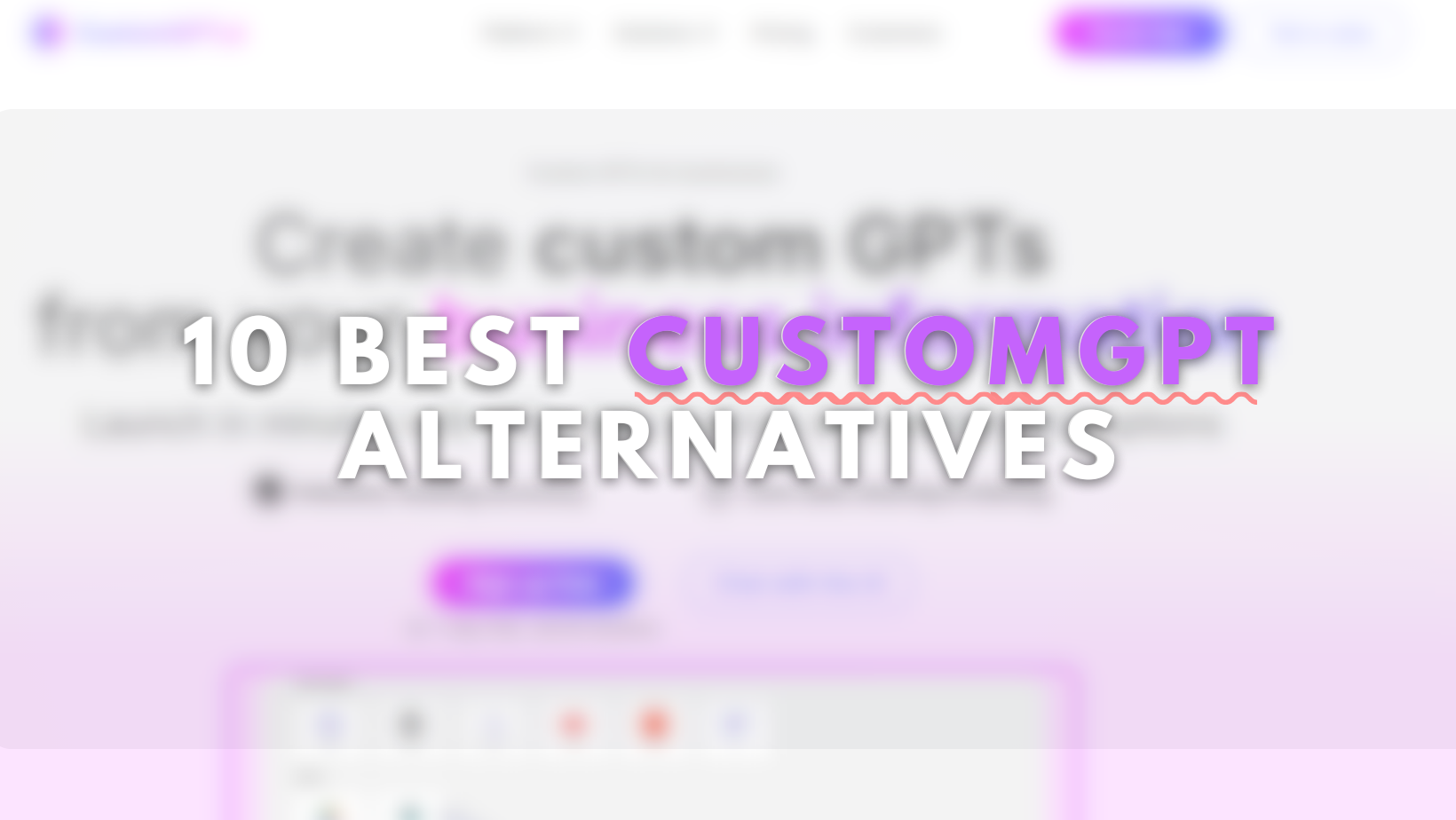
TL;DR CustomGPT.ai offers basic no-code chatbot features. This blog compares 10 alternatives with stronger automation, integrations, and flexibility for scalable customer support. CustomGPT is a no-code AI chatbot platform that allows businesses to build question-answering systems using documents and internal knowledge bases. It is primarily designed for retrieval-based use cases, where users ask questions and […]

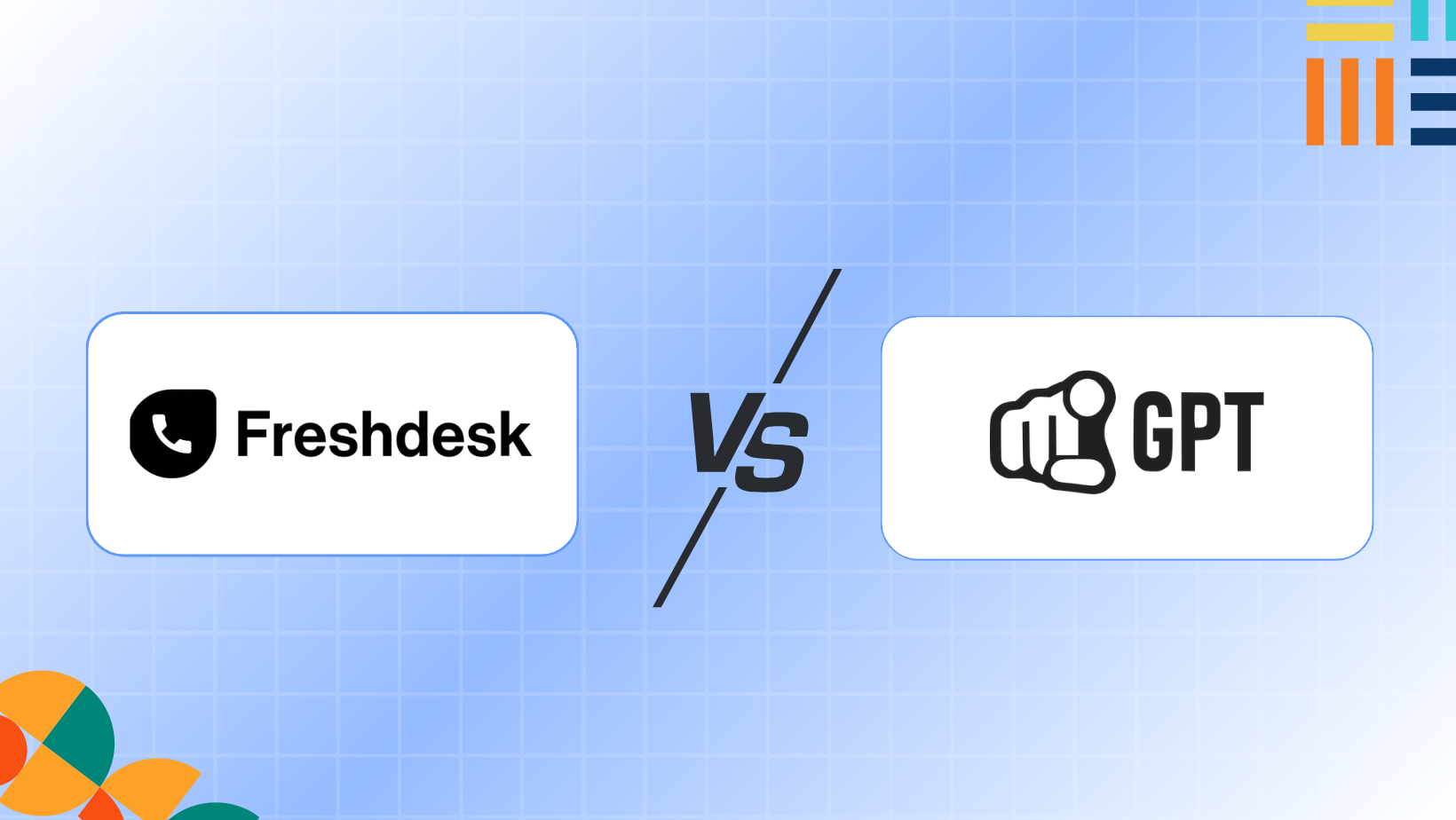
TL;DR: The Core Difference YourGPT Built around AI agents that handle conversations, run workflows, and resolve issues on their own across channels. The goal is to reduce incoming support volume by solving problems before they reach a human. Freshdesk Built around structured ticketing. It focuses on organizing queues, managing SLAs, and tracking agent performance. Humans […]


TLDR Zendesk works well for ticket-based support, but it can feel limiting as teams rely more on automation and multi-channel conversations. This guide compares 7 practical Zendesk alternatives that reduce manual handling and let AI manage common requests across chat and messaging tools Zendesk is one of the popular customer support platform has been around […]


WooCommerce gives store owners flexibility, but that flexibility comes with trade-offs as a store grows. Over time, pages slow down as plugins accumulate, carts get abandoned without obvious reasons, and customer questions start consuming more time than expected. These issues rarely appear all at once, but they compound quickly and directly affect revenue. After working […]

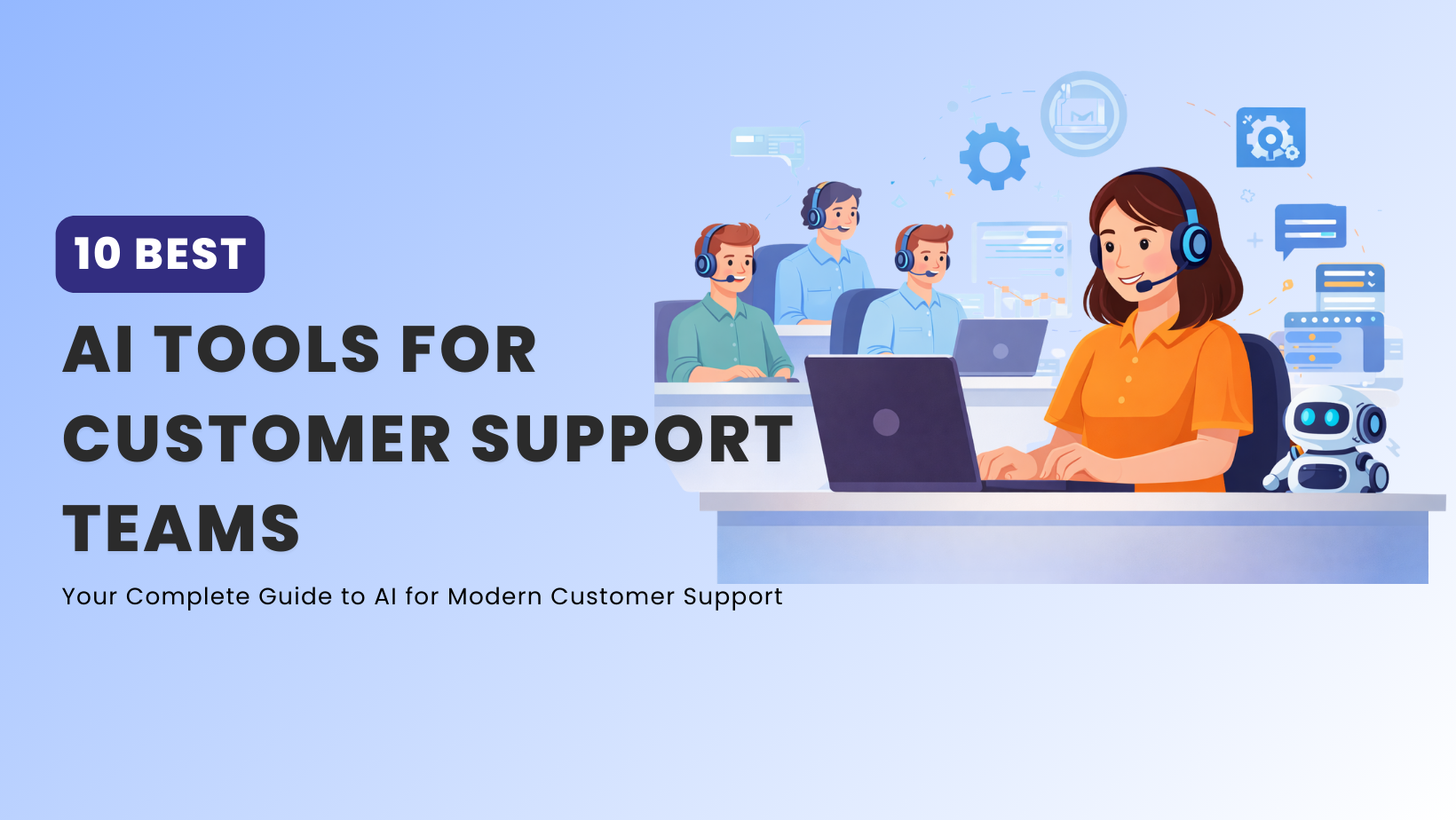
AI customer support tools now form a core part of how many teams handle growing contact volumes and rising customer expectations. At the same time, the market has become crowded, with many similar-looking products and overlapping claims, which makes evaluation harder for support leaders. The AI customer service segment grew from about $12 billion in […]


If you run an Instagram account for business in 2026, you already feel the pressure. The platform has 2 billion monthly users now. About 44% of people on Instagram shop every week, and most expect you to reply to their messages in under an hour. Between creating posts, Stories, and Reels, answering DMs, responding to […]
